
Amitabh Bachchan is an Indian actor who works in Hindi cinema. He is often considered one of the greatest, most accomplished and commercially successful actors in the history of Indian cinema. With a cinematic career spanning over five decades, he has played pivotal roles in over 200 films. Bachchan is often hailed as the Shahenshah of Bollywood, Sadi Ke Mahanayak, Star of the Millennium, or simply Big B. His dominance in the Indian film industry during the 1970s–80s led the French director François Truffaut to describe it as a "one-man industry". He is a recipient of several accolades including six National Film Awards and sixteen Filmfare Awards.
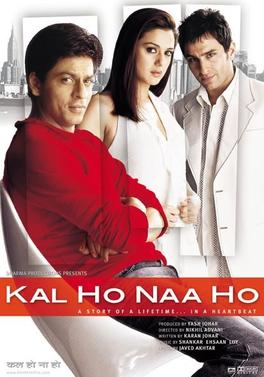
Kal Ho Naa Ho, also abbreviated as KHNH, is a 2003 Indian Hindi-language romantic comedy drama film directed by Nikhil Advani in his directorial debut with a story written by Karan Johar with dialogue by Niranjan Iyengar, and produced by Yash Johar. The film stars Shah Rukh Khan, Saif Ali Khan, and Preity Zinta, with Jaya Bachchan, Sushma Seth, Reema Lagoo, Lillete Dubey, and Delnaaz Irani in supporting roles. In the film, Naina Catherine Kapur (Zinta) and Aman Mathur fall in love, but a secret prevents him from reciprocating his feelings and results in a plan to set Naina up with her best friend, Rohit Patel.
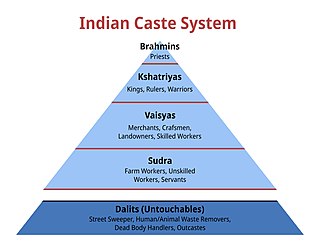
Dalit is a term used for untouchables and outcasts, who represented the lowest stratum of the castes in the Indian subcontinent. They are also called Harijans. Dalits were excluded from the fourfold varna of the caste hierarchy and were seen as forming a fifth varna, also known by the name of Panchama. Several scholars have drawn parallels between Dalits and the Burakumin of Japan, the Baekjeong of Korea and the peasant class of the medieval European feudal system.

Bipasha Basu is an Indian actress. Primarily known for her work in Hindi films, she has received a Filmfare Award. In the 2000s and 2010s, she was known for her work in the thriller and horror genres and for several item numbers, and was frequently cited in the media as a sex symbol and a scream queen.

Saif Ali Khan is an Indian actor and film producer who primarily works in Hindi films. The current head of the Pataudi family, he is the son of actress Sharmila Tagore and cricketer Mansoor Ali Khan Pataudi. Khan has won several awards, including a National Film Award and seven Filmfare Awards, and received the Padma Shri, the fourth highest Indian civilian award in 2010.

Anand (transl. Joy) is a 1971 Indian Hindi-language drama film co-written and directed by Hrishikesh Mukherjee, with dialogues written by Gulzar. It stars Rajesh Khanna in the lead role, with a supporting cast including Amitabh Bachchan, Sumita Sanyal, Ramesh Deo and Seema Deo.
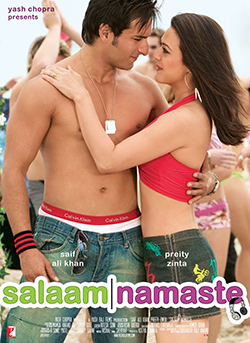
Salaam Namaste is a 2005 Indian romantic comedy-drama film written and directed by Siddharth Anand in his directorial debut and produced by Aditya Chopra under Yash Raj Films. The film stars Saif Ali Khan and Preity Zinta in lead roles, alongside a supporting cast of Arshad Warsi, Tania Zaetta and Jugal Hansraj. The film was released on 9 September 2005, and was the first Indian film to be shot entirely in Australia.

Kunal Kishore Kapoor, professionally known as Kunal Kapoor, is an Indian actor who works predominantly in Hindi films. Kapoor is a recipient of several accolades including a Stardust Award and an Asiavision Award.

The IIFA Award for Best Actor recognizes leading male actor who has delivered an outstanding performance in a leading role. The recipient is chosen by viewers and the winner is announced at the ceremony.

Matrubhoomi: A Nation Without Women is a 2003 Indian dystopian tragedy film written and directed by Manish Jha. The film examines the impact of female feticide and female infanticide on the gender balance and consequently the stability and attitudes of society. Its storyline bears some resemblance to real-life instances of gender imbalance and economics resulting in fraternal polyandry and bride buying in some parts of India. It depicts a future in an Indian village populated exclusively by males due to female infanticide over the years.
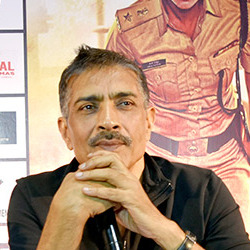
Prakash Jha is an Indian film producer, actor, director and screenwriter, mostly known for his political and socio-political films such as Hip Hip Hurray (1984), Damul (1984), Mrityudand (1997), Gangaajal (2003), Apaharan (2005), and his multi-starrer films, Raajneeti (2010), Aarakshan (2011), Chakravyuh (2012), and Satyagraha (2013). He is also the maker of National Film Award winning documentaries like Faces After The Storm (1984) and Sonal (2002).

Raajneeti (transl. Politics) is a 2010 Indian Hindi-language political thriller film co-written, directed and produced by Prakash Jha, with a screenplay by Anjum Rajabali and Prakash Jha. Depicting an archetypal conflict between rival political families and parties, based on the Mahabharata, the film starred an ensemble cast of Ajay Devgn, Nana Patekar, Ranbir Kapoor, Katrina Kaif, Arjun Rampal, Manoj Bajpayee, Sarah Thompson and Naseeruddin Shah. It was originally produced by Prakash Jha Productions and distributed by UTV Motion Pictures and Walkwater Media.
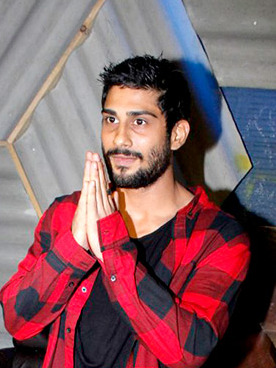
Prateik Patil Babbar is an Indian actor who predominantly appears in Hindi films. The son of late actress Smita Patil and former MP Raj Babbar, he began his career as a production assistant before pursuing an acting career. Prior to his screen debut, Babbar appeared in television advertisements for a variety of products, including Nestle KitKat, on the recommendation of the filmmaker Prahlad Kakkar. Since his debut in Bollywood, Babbar has received accolades such as a Filmfare Award and a Stardust Award.
The Stardust Best Drama Actor is chosen by the readers of the annual Stardust magazine. The award honours a star that has made an impact with their acting in that certain film.

Cocktail is a 2012 Indian Hindi-language romantic comedy film directed by Homi Adajania, written by Imtiaz Ali, and produced by Saif Ali Khan and Dinesh Vijan under their respective banners Illuminati Films and Maddock Films along with Eros International. It stars Saif Ali Khan, Deepika Padukone and Diana Penty. The film soundtrack was composed by Pritam, Yo Yo Honey Singh and Salim–Sulaiman.
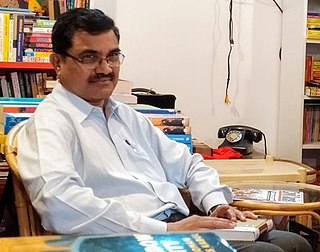
Anand Teltumbde is an Indian scholar, writer, and human rights activist who is a management professor at the Goa Institute of Management. He has written extensively about the caste system in India and has advocated for the rights of Dalits.

Satyagraha is a 2013 Indian Hindi-language political drama film directed by Prakash Jha starring Amitabh Bachchan, Ajay Devgn, Kareena Kapoor Khan, Arjun Rampal, Amrita Rao, Manoj Bajpayee, and Vipin Sharma in the lead roles. The first look of the film was released on 10 September 2012. Satyagraha was released in India on 30 August 2013, although it was released in the UAE a day earlier.

Masaan is a 2015 Indian Hindi-language independent drama film starring Richa Chadda and Vicky Kaushal in lead roles. It is Kaushal's debut Hindi film, and also the directorial debut of Neeraj Ghaywan. It is an Indo-French co-production by Drishyam Films, Macassar Productions, Phantom Films, Sikhya Entertainment, Arte France Cinema and Pathé Productions.
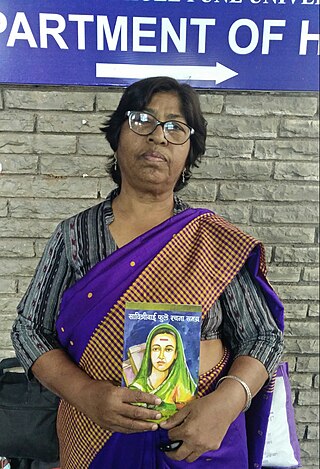
Rajni Tilak was one of the most prominent Indian Dalit rights activists and a leading voice of Dalit feminism and writing. She served as the Executive Director of the Centre for Alternative Dalit Media, co-founded the National Association of Dalit Organisations, and served as President of the Dalit Lekhak Sangh.



















